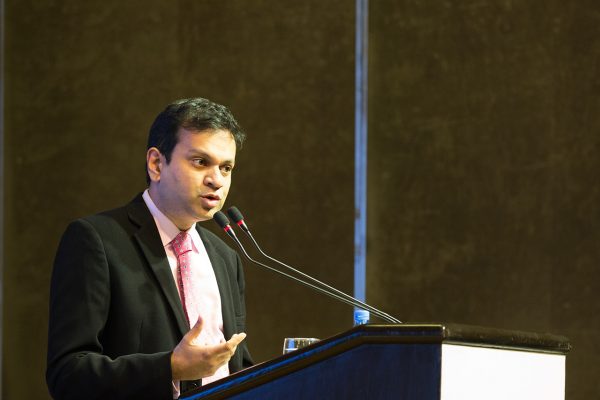A person you know is raped. Do you know what to do?
Reading Time: 4 minutes
[…]
Nadia* Begum was raped by her uncle. It was late at night, she had no support and she did not know who to tell. Nadia ran from her house and stayed with friends for three days, not telling anyone what had happened. By the time she returned, told her family, went to the wrong hospital and finally filed a case, there was no evidence left of what had happened.
Nadia’s case is not uncommon.
One person is raped every 6 hours in Bangladesh.
The country has seen a dramatic rise in the number of rape cases in recent months, with 217 women and children raped in September, the highest in any single month since 2010, according to a report published by Bangladesh Mahila Parishad, a women’s rights group.
The maximum penalty for rape in Bangladesh is life imprisonment. Perpetrators face capital punishment if the victims die, under the Prevention of Repression of Women and Children Act. Rapists often do not face justice because of many reasons, but one which could be avoided is a lack of basic knowledge about what survivors should do.
So, what should you do?
Firstly, concentrate fully on the person who has been raped:
- Call for help. 109 is the toll-free helpline for people seeking help for violence against women and children. 999 is the national helpline for emergency support.
- Collect evidence. Evidence such as clothing and hair is critical in incriminating a perpetrator. Ensure the survivor does not shower until medical tests are done.
- Take the person to a district or medical college hospital within 24 hours. Not all sub-district medical complexes or private hospitals are equipped to get medical tests done. The person must be taken to a suitable medical facility to conduct necessary medical tests.
- Lodge a case. Go to the nearest police station. If the police refuse to file the case, go to the court. Do not go for settlements bypassing the legal process. Once someone is raped, any attempts at out-of-court settlements or negotiation with the perpetrator is prohibited by the criminal law. In case the person faces intimidation or pressure from the perpetrator or local influentials, local victim support centres should be communicated.
- See a counsellor. Impact of sexual violence takes far greater toll than any physical injuries. Whenever someone is raped, the survivor might feel intimidated, ashamed or left out. It is often reported that survivors suffer from depression and take attempts at ending their lives. To avert this, survivors should introduced to psychosocial and legal counsellors who can bring newer perspective to the person going through a traumatic experience.
Prosecution for rape in Bangladesh is not very common as in most cases, survivors or family and friends do not proceed with rape cases over various inflencing factors. But if people have knowledge of what to do and what not, change must come. In one such incident, a father was sentenced to life term imprisonment by a Gazipur court for raping his 12-year-old daughter and making her pregnant.
That man threatened her daughter not to reveal anything but when the girl was five-months pregnant, a neighbor, Rekha Begum filed a case against the father, Aynal. This happened only because of a strong willed woman who dared and decided to stand against the wrong.
The government has a system in place that helps survivors to continue with the judicial process. The aggrieved just need to knock on the right door, and for this relatives or bystanders need to be empowered with knowledge to help.
The Gazipur incident is an ideal example when everything fell into place perfectly: a bystander with proper knowledge and thrust came forward, explored legal avenues with support from organisations which are there to help.
Here, the government stood strong with the girl and BRAC panel lawyer and legal aid services officials played due role in every phase after Rekha filed the case.
It is also important to note that once a case is filed, if the survivor or their family, decide to opt for mutual resolution, it is considered an offense against the state itself and is punishable by the law. Alternative dispute resolution can be an option in cases such as land-related disputes, but out-of-court settlements are illegal in criminal cases such as rape.
BRAC supports people to take action on rape through its 423 legal aid service centres across Bangladesh. Once an incident is reported. BRAC contacts survivors or their families immediately. After initial investigation, counsellors provide legal and psychosocial counselling, help to collect evidence and file the first information report. Once the legal process starts, BRAC panel lawyers help the survivor to take the case to court. Additionally, as men are often the first contact point for survivors, BRAC organises workshops for community leaders, mostly comprising of local elected representatives, on prevention, protection and prosecution.
These initiatives, in addition to many others carried out by BRAC, the government and other organisations, are resulting in increased reporting. They are also reducing a dangerous social norm – forced marriages to rapists.
1,115 people were reported as raped in the first nine months of 2019, according to Ain o Salish Kendra. 849 were rapes by one person and 251 were gang rapes. 446 were children and in many cases, perpetrators were from the family. These statistics only reflect the reported incidents of rape. Many incidents remain unreported.
This 16 days of activism, let us all make a commitment to reject gender-based violence in all its forms. Let’s also ensure that all of us are able to respond effectively if a family member or friend is raped, so that incidents like Nadia*’s do not happen.
*Not her real name.





